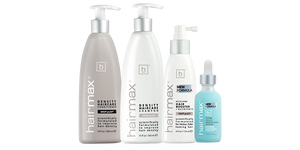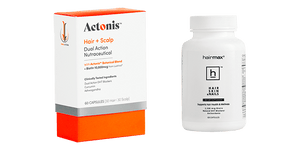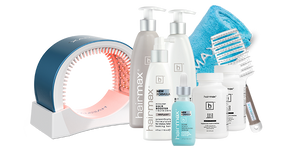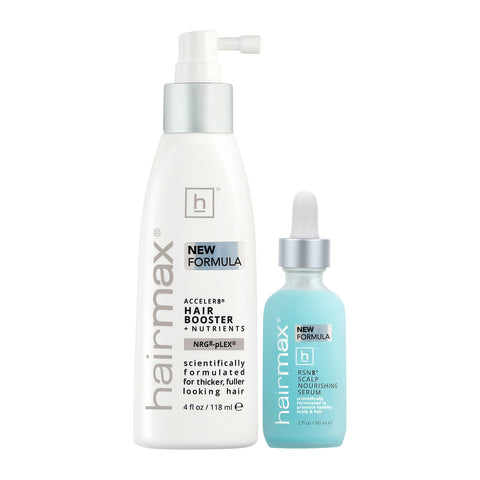While most people know about female and male pattern baldness, not much is known about drugs that are taken that may negatively impact hair health and cause hair loss.
When drugs affect hair health, this can lead to hair falling out by negatively affecting anagen hairs. Anagen hairs are the thick normal hair that you have on your scalp or in other areas of your body such as your eyebrows. Under normal hair health, hair growth occurs through cell division (mitosis) of the certain cells of the hair bulb in the anagen or growing cycle of hair growth. However, some drugs interrupt the mitotic activity that takes place in the hair follicle and affects hair health, by causing hair to shed and this is called anagen effluvium. (Effluvium is a medical term for shedding).
Other drugs impact hair health, by causing the hair to prematurely enter the telogen or shedding phase of the hair loss cycle and this is called telogen effluvium. In anagen effluvium, hair health and hair loss occur suddenly within days or weeks, but telogen effluvium which affects hair health, can take place over a few months. The occurrence of these effluvium episodes which affect hair health depend on the drug taken and a persons’ sensitivity to it and might be rare occurrences when normal doses are taken.
It is well known that the common side effect of many drugs for chemotherapy is anagen effluvium, which adversely affects hair health and rapidly causes diffuse hair loss. However, other drugs that might affect hair health and perhaps cause telogen effluvium, are not as well known, and below are a list of some of them.
- Anticoagulant drugs such Coumadin
- Drugs containing vitamin A/ retinol derivatives such as Accutane/isotretinoin
- Some cholesterol drugs such as Lopid Some anticonvulsant drugs
- Many anti-depression drugs such as Prozac, Zoloft, Sinequan, etc.
- Anti-fungal drugs
- Drugs for glaucoma such as Timoptic
- Gout drugs such as Zyloprim
- Treatments for high blood pressure such as Tenormin, Corgard, etc.
- Hormone containing drugs such as birth control pills
- Anti-inflammatory drugs such as Naproxyn, Clinorin, etc.
- Drugs for thyroid disorders
- Some anti-ulcer drugs such as Pepcid, Zantac, etc.
So what can be done if you experience telogen effluvium from a drug you are taking? The answer is the HairMax LaserComb which is an ideal non-drug laser phototherapy medical device to help restore hair health once the drug in question is discontinued or the causes of the hair loss have been eliminated. The laser energy of the HairMax will stimulate the hair follicle to produce thick, normal anagen hairs which will result in renewed hair growth and a return to overall hair health.










